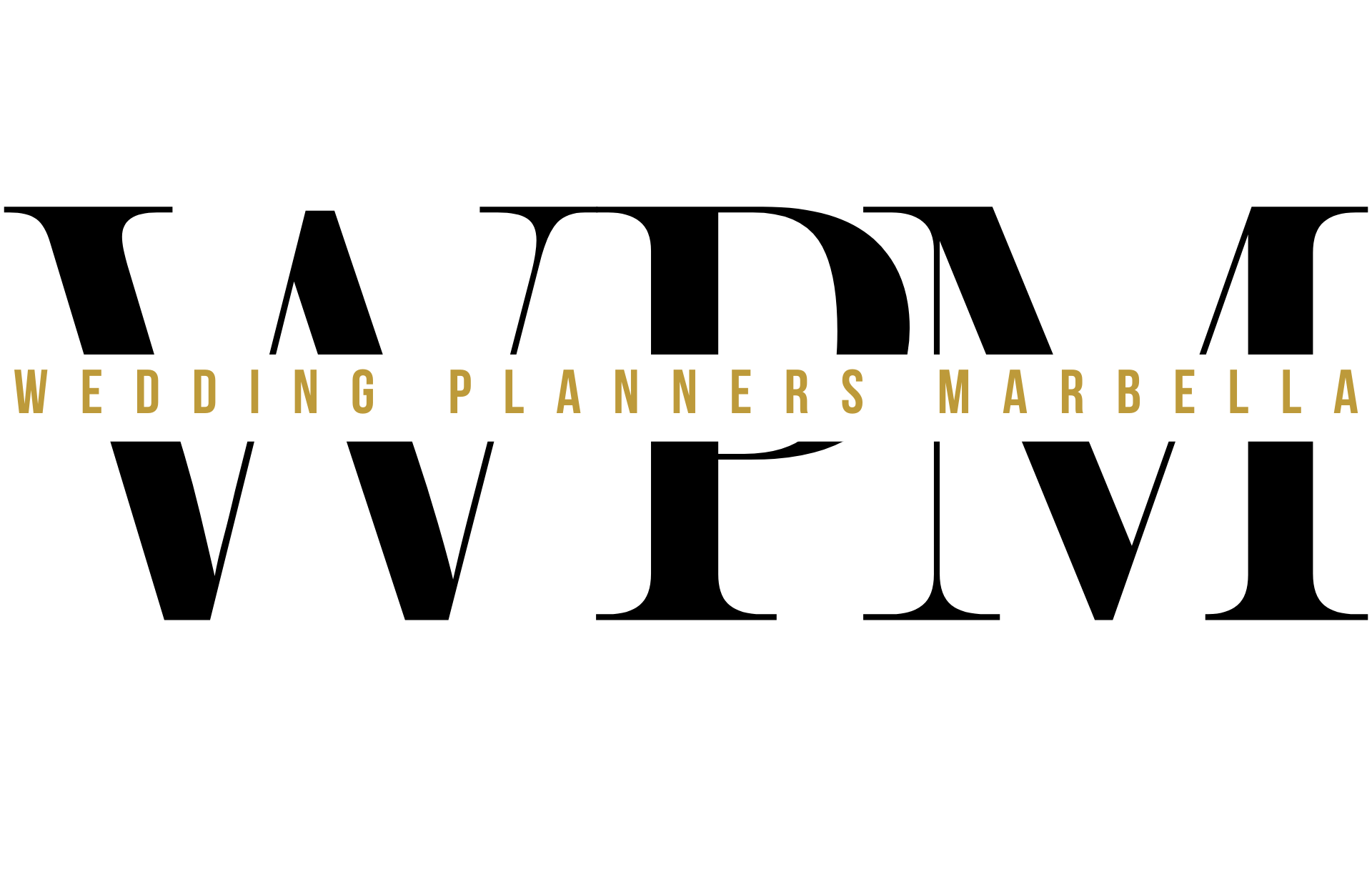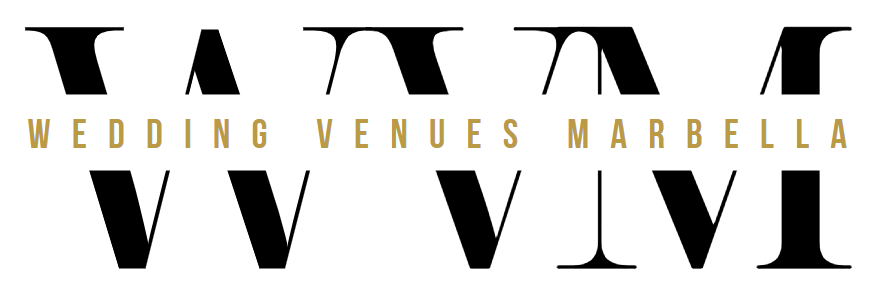Get a FREE Spanish Wedding Venue Checklist
At Wedding Planners Marbella, we understand that after the joyous “yes”, choosing the perfect place to celebrate your union is one of the biggest decisions you’ll make. A venue is more than a setting for the ceremony and reception – it sets the tone for every cherished moment, from the first step down the aisle to the final dance under the stars. Each architectural detail, glimmer of lighting and sweeping landscape view becomes part of a story that reflects who you are as a couple. In short, it’s not just about four walls or a piece of land; it’s about finding a canvas where your vision can truly come to life.
For years, we’ve hand-picked an array of Spain’s most stunning properties – from sun-kissed Andalusian cortijos and stately Catalan masias tucked among ancient olive groves, to tranquil fincas along the Valencian coast and majestic historic palaces in Madrid. We vet each venue not only for its beauty but also for practical logistics and top-quality service. Our mission is to lead you to spaces that mirror your style – whether that’s rustic elegance, sleek modern minimalism or timeless romantic charm – while keeping within your budget and surpassing your expectations. We pride ourselves on recommending venues that not only look spectacular but also deliver a seamless experience for you and your guests.
 This guide is designed to be your trusty companion on venue visits, keeping you organised, informed and confident at every step. Each section of the checklist begins with a brief explanation of why that aspect matters. Read those paragraphs first, then use the bullet-point questions to jot down notes as you tour the venue. By applying the same set of questions to each location, you’ll be comparing like for like, avoiding common oversights and ultimately making your final choice with clarity and ease. An organised approach like this transforms what could be an overwhelming process into an enjoyable journey toward finding your perfect venue. – If you;re looking for the best Spanish Wedding Venue Checklist look no furthe!
This guide is designed to be your trusty companion on venue visits, keeping you organised, informed and confident at every step. Each section of the checklist begins with a brief explanation of why that aspect matters. Read those paragraphs first, then use the bullet-point questions to jot down notes as you tour the venue. By applying the same set of questions to each location, you’ll be comparing like for like, avoiding common oversights and ultimately making your final choice with clarity and ease. An organised approach like this transforms what could be an overwhelming process into an enjoyable journey toward finding your perfect venue. – If you;re looking for the best Spanish Wedding Venue Checklist look no furthe!
 Keep this guide with you on every venue tour, so you can jot down observations in real time.
Keep this guide with you on every venue tour, so you can jot down observations in real time. Apply the same criteria at each venue to ensure fair comparisons.
Apply the same criteria at each venue to ensure fair comparisons. Consider using digital tools (like our downloadable checklist template) to easily compare venues side by side.
Consider using digital tools (like our downloadable checklist template) to easily compare venues side by side. Prioritise your must-have elements, but stay open to delightful surprises a venue may offer.
Prioritise your must-have elements, but stay open to delightful surprises a venue may offer. Before signing any contract, review this checklist to confirm all details are covered.
Before signing any contract, review this checklist to confirm all details are covered.
Define Your Vision & Budget
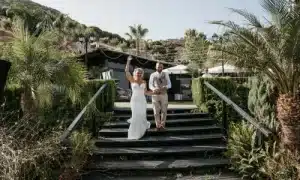 Each couple brings a unique vision, cultural traditions and practical needs to their planning process. Perhaps you imagine exchanging vows beneath rustling olive trees at a sun-soaked Andalusian estate, or maybe you see yourself dancing until dawn in a sleek rooftop loft overlooking Marbella’s twinkling skyline. Whatever your dream, start by putting it into words and visuals. Sit down together (with any family involved) and list a few adjectives—romantic, intimate, grand, whimsical—that capture the mood you both want. Then outline which venue features are absolutely non-negotiable versus those that are nice-to-have. For example, you might insist on an on-site chapel, a seafront terrace or a charming old barn for your ceremony, while things like permission for a live band, a fireworks display or vintage furniture décor could be delightful extras if available.
Each couple brings a unique vision, cultural traditions and practical needs to their planning process. Perhaps you imagine exchanging vows beneath rustling olive trees at a sun-soaked Andalusian estate, or maybe you see yourself dancing until dawn in a sleek rooftop loft overlooking Marbella’s twinkling skyline. Whatever your dream, start by putting it into words and visuals. Sit down together (with any family involved) and list a few adjectives—romantic, intimate, grand, whimsical—that capture the mood you both want. Then outline which venue features are absolutely non-negotiable versus those that are nice-to-have. For example, you might insist on an on-site chapel, a seafront terrace or a charming old barn for your ceremony, while things like permission for a live band, a fireworks display or vintage furniture décor could be delightful extras if available.
Once you’ve outlined the dream, it’s time for a reality check: aligning your vision with your budget. A good rule of thumb is to allocate around 30% of your total wedding budget to the venue and catering combined. To visualise this, break down your overall budget into categories – venue, catering, attire, photography, décor, entertainment – and assign an approximate percentage to each. This exercise gives you a clear picture of where you can be flexible. For instance, if you fall in love with a venue that costs more than expected, you might trim the décor spend or invite fewer guests to compensate. Having these numbers set from the start will spare you disappointment and put you in a stronger position to negotiate.
 List your key aesthetic keywords (the vibe or theme you envision) and gather some inspirational images.
List your key aesthetic keywords (the vibe or theme you envision) and gather some inspirational images. Write down which venue features are must-haves and which are secondary preferences.
Write down which venue features are must-haves and which are secondary preferences. Set your total wedding budget and plan to allocate roughly 30% of it towards the venue plus catering.
Set your total wedding budget and plan to allocate roughly 30% of it towards the venue plus catering. Divide the rest of the budget into categories (décor, attire, photography, etc.) and assign each a tentative percentage.
Divide the rest of the budget into categories (décor, attire, photography, etc.) and assign each a tentative percentage. Keep a comparison spreadsheet to track each venue’s quotes and what’s included.
Keep a comparison spreadsheet to track each venue’s quotes and what’s included.
Check Availability & Date Options
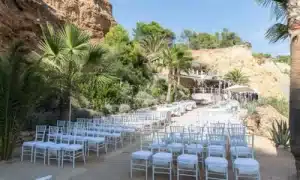 Popular Spanish venues – think romantic seaside fincas in Mallorca or vineyard estates in La Rioja – often get booked out over a year in advance, particularly for weekends in the busy spring and autumn months. When reaching out to a venue, it’s wise to offer two or three date options, including some off-peak choices like a weekday or winter date. Being flexible can lead to lower prices, a wider choice of vendors, and stronger bargaining power. Just be mindful of special local events (festivals, bank holidays or big conferences) that might drive up prices or fill up local hotels; it pays to check the regional calendar before you set your heart on a date.
Popular Spanish venues – think romantic seaside fincas in Mallorca or vineyard estates in La Rioja – often get booked out over a year in advance, particularly for weekends in the busy spring and autumn months. When reaching out to a venue, it’s wise to offer two or three date options, including some off-peak choices like a weekday or winter date. Being flexible can lead to lower prices, a wider choice of vendors, and stronger bargaining power. Just be mindful of special local events (festivals, bank holidays or big conferences) that might drive up prices or fill up local hotels; it pays to check the regional calendar before you set your heart on a date.
When discussing dates with a venue coordinator, ask how far in advance their calendar tends to fill up and if they offer any incentives for off-peak bookings. It’s not uncommon for venues to have special rates for Sunday celebrations, winter weddings (think January or February), or even midday receptions. Also, make sure you know how long you can pencil in a date before you must commit with a contract and deposit, and what happens if you need to postpone – some places charge fees for rescheduling. Understanding the timeline and any possible fees attached to reserving or changing dates will help you plan with confidence.
 List your ideal wedding date plus two or three backup options (including off-peak days or seasons).
List your ideal wedding date plus two or three backup options (including off-peak days or seasons). Ask how quickly the venue’s calendar fills up and how far in advance you’d need to book to secure your date.
Ask how quickly the venue’s calendar fills up and how far in advance you’d need to book to secure your date. Inquire about any special rates for weekdays, Sundays, or off-season months.
Inquire about any special rates for weekdays, Sundays, or off-season months. Check the local calendar for festivals, holidays or other events that might impact your chosen date (crowds, traffic, accommodation, etc.).
Check the local calendar for festivals, holidays or other events that might impact your chosen date (crowds, traffic, accommodation, etc.). Find out if the venue charges any fees for postponing or changing your date later on.
Find out if the venue charges any fees for postponing or changing your date later on.
Venue Capacity & Guest Experience
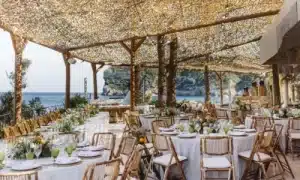 A venue’s maximum capacity is just a guideline – it doesn’t guarantee comfort or good flow. A ballroom that can hold 200 might feel cavernous with only 80 guests, or uncomfortably crowded with 180. Ask the venue for floor plans or photos from past weddings that had a guest count similar to yours. Even better, try to see the space when it’s set up for an event (or peek in during another wedding) to observe it in action. Actually seeing tables and seating in place will help you gauge how the area feels and how guests might move around. These real-life visuals can confirm if your guest count will comfortably fit the venue.
A venue’s maximum capacity is just a guideline – it doesn’t guarantee comfort or good flow. A ballroom that can hold 200 might feel cavernous with only 80 guests, or uncomfortably crowded with 180. Ask the venue for floor plans or photos from past weddings that had a guest count similar to yours. Even better, try to see the space when it’s set up for an event (or peek in during another wedding) to observe it in action. Actually seeing tables and seating in place will help you gauge how the area feels and how guests might move around. These real-life visuals can confirm if your guest count will comfortably fit the venue.
Also think about your guests’ journey throughout the day: how they’ll move from arriving, to the ceremony, to cocktail hour, and then to the reception. If the ceremony space and reception hall are right on top of each other, things can feel cramped or chaotic; but if they’re too far apart, guests could get lost or tired out. The ideal venue layout provides distinct zones – perhaps a garden for the ceremony, a patio or lounge for cocktails, and a hall for dinner and dancing – arranged in a logical sequence. Pay attention to whether everyone can see what’s happening (good sightlines), if there are clear directions or signage, and if seating areas are placed thoughtfully. These details ensure your friends and family can enjoy the celebration without confusion or discomfort.
 Confirm the venue’s maximum and minimum guest capacity (and what they consider comfortable for the space).
Confirm the venue’s maximum and minimum guest capacity (and what they consider comfortable for the space). Ask to see floor plans or example seating layouts for a wedding of your size.
Ask to see floor plans or example seating layouts for a wedding of your size. Map out the guest flow (from arrival to ceremony to cocktail hour to reception) to spot any bottlenecks or long walks.
Map out the guest flow (from arrival to ceremony to cocktail hour to reception) to spot any bottlenecks or long walks. Ensure every seat has a clear view of the ceremony area.
Ensure every seat has a clear view of the ceremony area. Ask about acoustics or even do a sound check – can everyone hear the music and speeches clearly when the space is full?
Ask about acoustics or even do a sound check – can everyone hear the music and speeches clearly when the space is full?
Location & Accessibility
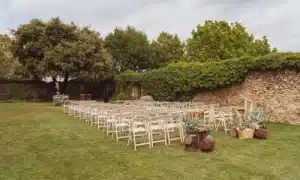 Logistics are a big part of keeping guests happy and on time, especially if many are flying in or driving long distances. Make sure the venue is reasonably accessible: check how far it is from the nearest airport, train station and major road. If you get the chance to do a practice run, drive the route to the venue at a similar time of day as your wedding to see how traffic might affect travel times. Our listings on Wedding Planners Marbella include handy transport notes for each venue, which can help you arrange things like shuttle buses or group transport if needed.
Logistics are a big part of keeping guests happy and on time, especially if many are flying in or driving long distances. Make sure the venue is reasonably accessible: check how far it is from the nearest airport, train station and major road. If you get the chance to do a practice run, drive the route to the venue at a similar time of day as your wedding to see how traffic might affect travel times. Our listings on Wedding Planners Marbella include handy transport notes for each venue, which can help you arrange things like shuttle buses or group transport if needed.
Think about what happens once guests arrive: is there ample parking on-site or valet service to smooth things along? Does the venue work with nearby hotels or guest houses for accommodation? Many venues can arrange special group rates or hold blocks of rooms for your wedding party. If you’ll have elderly or disabled guests attending, check that the venue has proper accessibility (ramps, lifts, and accessible toilets) so everyone can navigate comfortably. Another small but important detail is signage – clear signs or staff directing people from the car park to the ceremony and reception areas will prevent anyone from getting lost or stressed.
 Find out how far the venue is from the nearest airport, train station and major road (and how long that drive typically takes).
Find out how far the venue is from the nearest airport, train station and major road (and how long that drive typically takes).- vCheck on-site parking capacity and whether they offer valet or shuttle services for guests.
 Inquire about any hotel partnerships for convenient group bookings or special room rates.
Inquire about any hotel partnerships for convenient group bookings or special room rates. Confirm the venue has accessibility features like ramps, lifts and accessible toilets for guests with mobility needs.
Confirm the venue has accessibility features like ramps, lifts and accessible toilets for guests with mobility needs. Ensure the venue provides clear signage (or staff guides) to direct guests between ceremony and reception areas.
Ensure the venue provides clear signage (or staff guides) to direct guests between ceremony and reception areas.
Catering & Tasting Policy
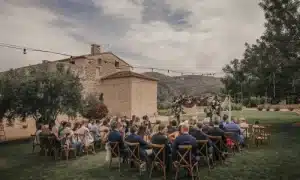 In Spain, many wedding venues love to show off local flavours – think slicing into authentic Jamón Ibérico in Andalucía, savouring seafood paella by the Valencian coast, or toasting with a fine Rioja from up north. When it comes to the food at your wedding, find out if the venue requires you to use their in-house catering or if they allow outside caterers. If you have a specific catering company or style in mind (perhaps a favourite chef or a particular cuisine), you’ll want to know upfront how flexible the venue is. On our Wedding Planners Marbella site, we note which venues are open to external caterers so you can easily pinpoint those that fit your culinary vision.
In Spain, many wedding venues love to show off local flavours – think slicing into authentic Jamón Ibérico in Andalucía, savouring seafood paella by the Valencian coast, or toasting with a fine Rioja from up north. When it comes to the food at your wedding, find out if the venue requires you to use their in-house catering or if they allow outside caterers. If you have a specific catering company or style in mind (perhaps a favourite chef or a particular cuisine), you’ll want to know upfront how flexible the venue is. On our Wedding Planners Marbella site, we note which venues are open to external caterers so you can easily pinpoint those that fit your culinary vision.
When it’s time for a menu tasting, clarify exactly what’s included. How many dishes can you sample, and can both of you (or a few family members) attend the tasting without extra charge? Also, ask about any fees that might catch you off guard later: for example, is there a corkage fee if you bring your own wine or champagne? Do they charge to cut and serve your cake? What drink packages do they offer – an open bar, a pay-per-drink system, or drink tokens? It’s best to get a detailed, itemised quote for catering and bar services so you won’t be blindsided by any “hidden” costs. And don’t forget to mention any special dietary needs among your guests. Venues are usually happy to cater for vegetarian, vegan or gluten-free diets, but these often need to be arranged in advance (and occasionally might cost a little extra).
 Confirm if catering must be done in-house or if you can bring in an outside caterer (and note any fees for external vendors).
Confirm if catering must be done in-house or if you can bring in an outside caterer (and note any fees for external vendors). Review the venue’s menu options – are local specialities featured, and can they customise dishes to your taste?
Review the venue’s menu options – are local specialities featured, and can they customise dishes to your taste? Ask how the tasting works: how many dishes can you try, how many people can attend, and if extra tastings would cost more.
Ask how the tasting works: how many dishes can you try, how many people can attend, and if extra tastings would cost more. Inquire about extra charges like corkage (for your own alcohol), cake-cutting fees, or set bar package costs.
Inquire about extra charges like corkage (for your own alcohol), cake-cutting fees, or set bar package costs. Confirm they can accommodate your guests’ dietary requirements or allergies (vegetarian, vegan, gluten-free, etc.).
Confirm they can accommodate your guests’ dietary requirements or allergies (vegetarian, vegan, gluten-free, etc.).
Amenities & On-Site Services
 Some venues come with a lot of the essentials included – think tables and chairs, basic linens, standard lighting and even speakers or microphones. Having these provided can save you a lot of hassle (and money) compared to hiring everything separately. So, when you visit, be sure to ask for a list of what’s included in the venue’s package and what you might need to bring in or rent additionally. Also, take a peek at the “getting ready” rooms for the couple. Do they have plenty of natural light for make-up artists to work? Are there enough plug sockets for hairdryers and phone chargers? Is there ample space for the bridal party’s outfits and a calm moment before the ceremony? These preparation areas set the tone for your morning and can be the backdrop for those precious getting-ready photos.
Some venues come with a lot of the essentials included – think tables and chairs, basic linens, standard lighting and even speakers or microphones. Having these provided can save you a lot of hassle (and money) compared to hiring everything separately. So, when you visit, be sure to ask for a list of what’s included in the venue’s package and what you might need to bring in or rent additionally. Also, take a peek at the “getting ready” rooms for the couple. Do they have plenty of natural light for make-up artists to work? Are there enough plug sockets for hairdryers and phone chargers? Is there ample space for the bridal party’s outfits and a calm moment before the ceremony? These preparation areas set the tone for your morning and can be the backdrop for those precious getting-ready photos.
A dedicated on-site coordinator or event manager provided by the venue can be a godsend on the big day. Find out if your venue supplies a point person to help run things: will someone be there on the day to coordinate the schedule, direct vendors, and handle any hiccups? It’s worth asking how much support they offer and whether they’ll work directly with your external suppliers or planner. Another thing to check is what contingency plans the venue has. Do they have a backup generator in case of a power cut? Is there spare audio/visual equipment or tech support on hand if, say, a microphone fails? Knowing there are safety nets in place – and professionals ready to deploy them – means you can relax and soak in every moment without having to troubleshoot.
 Find out which items (tables, chairs, sound equipment, etc.) are included with the venue, and which would incur an extra cost.
Find out which items (tables, chairs, sound equipment, etc.) are included with the venue, and which would incur an extra cost. Check the bridal/groom prep rooms to ensure they’re spacious, with good lighting and plenty of outlets for hair and makeup.
Check the bridal/groom prep rooms to ensure they’re spacious, with good lighting and plenty of outlets for hair and makeup. Ask about on-site technology: is there reliable Wi-Fi, and what sound system or microphones are provided for speeches/music?
Ask about on-site technology: is there reliable Wi-Fi, and what sound system or microphones are provided for speeches/music? Confirm whether the venue provides a day-of coordinator or event manager to assist during your wedding.
Confirm whether the venue provides a day-of coordinator or event manager to assist during your wedding. Inquire about backup plans – do they have a generator if the power goes out, or spare AV equipment if something breaks?
Inquire about backup plans – do they have a generator if the power goes out, or spare AV equipment if something breaks?
Logistics & Vendor Guidelines
 Prevent any wedding-day chaos by getting the venue’s rules for suppliers in advance. You’ll want to know the allowed time windows for vendors to set up and break down – for example, what time can the florist start decorating, and by when does the band have to pack up? Also, find out if there are designated delivery entrances or loading bays, and whether the venue has useful features like service lifts or a storage room for equipment. We include these details on the Wedding Planners Marbella listing for each property, so you can plan your supplier timetable with precision. By sorting this out, all your vendors will know exactly when to arrive and what to expect on the day.
Prevent any wedding-day chaos by getting the venue’s rules for suppliers in advance. You’ll want to know the allowed time windows for vendors to set up and break down – for example, what time can the florist start decorating, and by when does the band have to pack up? Also, find out if there are designated delivery entrances or loading bays, and whether the venue has useful features like service lifts or a storage room for equipment. We include these details on the Wedding Planners Marbella listing for each property, so you can plan your supplier timetable with precision. By sorting this out, all your vendors will know exactly when to arrive and what to expect on the day.
Be aware that local laws can affect your wedding plans too. Some areas have strict noise curfews or sound level limits – you might find that live music has to stop by midnight or that the DJ must keep the volume below a certain decibel level. Make sure to ask the venue if any permits are needed for your event, especially for things like serving alcohol or having amplified music. Additionally, check what insurance the venue expects you or your vendors to have. It’s common for venues to require proof of liability insurance (often asking to be named on the policy themselves), so you’ll want to sort this out well before the day.
 Confirm the time frame vendors have for setting up and packing up (permitted load-in and load-out times).
Confirm the time frame vendors have for setting up and packing up (permitted load-in and load-out times). Ask if there are special access points for vendors, such as a back entrance or service lift, for bringing in equipment.
Ask if there are special access points for vendors, such as a back entrance or service lift, for bringing in equipment. Ask about any local rules or permits: are there noise curfews, volume limits, or licences required for music and alcohol?
Ask about any local rules or permits: are there noise curfews, volume limits, or licences required for music and alcohol? Verify what insurance the venue requires from you or your suppliers (for example, public liability insurance naming the venue).
Verify what insurance the venue requires from you or your suppliers (for example, public liability insurance naming the venue). Check if the venue has any specific rules for décor setup or removal (e.g. when all décor must be taken down after the event).
Check if the venue has any specific rules for décor setup or removal (e.g. when all décor must be taken down after the event).
Contracts, Fees & Policies
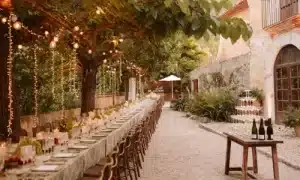 The formal contract phase is where all the little costs hide – taxes (like VAT), service fees, gratuities, cleaning charges, you name it. To avoid surprises, ask the venue for a fully itemised quote that accounts for your specific plans: your number of guests, the services or packages you want, and any extras. This way, you can see exactly what you’re paying for. Also, take a close look at the payment schedule in the contract. Note the deposit amount required to secure your booking, when subsequent payments are due, and what payment methods they accept (bank transfer, credit card, etc.). Make sure the timeline for payments works with your budget cash flow.
The formal contract phase is where all the little costs hide – taxes (like VAT), service fees, gratuities, cleaning charges, you name it. To avoid surprises, ask the venue for a fully itemised quote that accounts for your specific plans: your number of guests, the services or packages you want, and any extras. This way, you can see exactly what you’re paying for. Also, take a close look at the payment schedule in the contract. Note the deposit amount required to secure your booking, when subsequent payments are due, and what payment methods they accept (bank transfer, credit card, etc.). Make sure the timeline for payments works with your budget cash flow.
No one likes to think about having to cancel or postpone, but it’s vital to know the venue’s policy just in case. Find out exactly what happens if you change your date or cancel: will you lose your deposit? Can any of it be applied to a new date, or is it strictly non-refundable? Some venues might be willing to offer a credit or an alternative date without extra cost, while others won’t. It’s also wise to ask about a “force majeure” clause – essentially, how cancellations due to extraordinary events (like natural disasters or a pandemic) are handled – and whether things like bad weather are covered. Make sure you understand any penalties and how long refunds would take to process if you ever have to invoke these clauses. Having this knowledge ahead of time protects you from unwelcome surprises later.
 Review the deposit amount, the payment schedule (due dates), and which payment methods are accepted.
Review the deposit amount, the payment schedule (due dates), and which payment methods are accepted. Ask for an itemised quote that clearly lists all costs, including VAT, service charges and any extras.
Ask for an itemised quote that clearly lists all costs, including VAT, service charges and any extras. Understand the cancellation and postponement terms – what refunds are offered and what fees might be forfeited.
Understand the cancellation and postponement terms – what refunds are offered and what fees might be forfeited. Check if there are any administrative fees or non-refundable charges (for example, a booking or cleaning fee) aside from the deposit.
Check if there are any administrative fees or non-refundable charges (for example, a booking or cleaning fee) aside from the deposit. Ensure the contract covers “force majeure” situations – will you be protected if bad weather or other uncontrollable events force a cancellation?
Ensure the contract covers “force majeure” situations – will you be protected if bad weather or other uncontrollable events force a cancellation?
Weather & Plan B
 No matter how reliable the sunshine seems in Spain, it’s essential to have a Plan B for weather. Make sure the venue can offer an alternative space if rain or high winds strike – whether that’s moving indoors or to a covered terrace – and ideally that this backup comes at no extra cost. Ask if the venue has things like tents, patio heaters, or temporary flooring available, or whether you’d need to rent those from elsewhere. Also pin down the logistics: if you have to switch to the bad-weather plan, who will set it up and take charge? Will there be additional fees for using that backup option? And how late can you wait to make the call to move everything inside? Knowing these details will let you handle a weather wobble with minimal stress.
No matter how reliable the sunshine seems in Spain, it’s essential to have a Plan B for weather. Make sure the venue can offer an alternative space if rain or high winds strike – whether that’s moving indoors or to a covered terrace – and ideally that this backup comes at no extra cost. Ask if the venue has things like tents, patio heaters, or temporary flooring available, or whether you’d need to rent those from elsewhere. Also pin down the logistics: if you have to switch to the bad-weather plan, who will set it up and take charge? Will there be additional fees for using that backup option? And how late can you wait to make the call to move everything inside? Knowing these details will let you handle a weather wobble with minimal stress.
It’s also worth discussing exactly how a last-minute switch would work. If the weather turns, how many hours would it take to move everything and get the backup location ready? Will the venue have enough staff on hand to manage a quick changeover? And how will they let you and your guests know if plans change on the day? Another key point: make sure the backup area has all the features you need. Does it have adequate lighting, a sound system, and seating like the original space? Can all your decorations and equipment be moved and set up there without a hitch? When a venue has a solid foul-weather game plan, you’ll have much less to worry about, leaving you free to enjoy the day come rain or shine.
 Ensure the venue can provide an indoor or covered backup space for your ceremony/reception if the weather turns bad (ideally at no extra cost).
Ensure the venue can provide an indoor or covered backup space for your ceremony/reception if the weather turns bad (ideally at no extra cost). Ask if the venue can supply weather essentials like tents, heaters or flooring, or if you’d need to rent those separately.
Ask if the venue can supply weather essentials like tents, heaters or flooring, or if you’d need to rent those separately. Find out who is in charge of setting up the backup plan and if there are any extra costs involved in using it.
Find out who is in charge of setting up the backup plan and if there are any extra costs involved in using it. Ask how late you can decide to switch to the backup plan – can that call be made on the wedding day, or must it be earlier?
Ask how late you can decide to switch to the backup plan – can that call be made on the wedding day, or must it be earlier? Check that the backup location has comparable facilities (lighting, sound equipment, seating, etc.) to the main venue.
Check that the backup location has comparable facilities (lighting, sound equipment, seating, etc.) to the main venue.
Personalisation & Extras
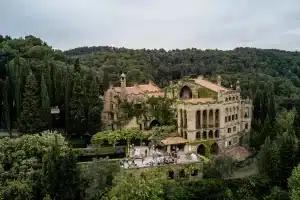 No two couples are the same, and ideally your venue should let you add those personal touches that make the day yours. It’s a good idea to ask upfront how flexible the venue is with creative ideas. Can you hang things like floral chandeliers or lanterns from the ceiling beams? Are candles, sparklers or other open flames allowed on the tables or during the send-off? What about a fireworks show to cap the night, or having a drone fly around to film aerial shots? Maybe you’re planning something culturally special – a troupe of live flamenco dancers or another traditional performance. Whatever extras you have in mind, check that the venue permits them and see if any special insurance or permits are required.
No two couples are the same, and ideally your venue should let you add those personal touches that make the day yours. It’s a good idea to ask upfront how flexible the venue is with creative ideas. Can you hang things like floral chandeliers or lanterns from the ceiling beams? Are candles, sparklers or other open flames allowed on the tables or during the send-off? What about a fireworks show to cap the night, or having a drone fly around to film aerial shots? Maybe you’re planning something culturally special – a troupe of live flamenco dancers or another traditional performance. Whatever extras you have in mind, check that the venue permits them and see if any special insurance or permits are required.
It can be really helpful to do a bit of research on how other couples have personalised the venue. Browse through photo galleries of real weddings and read testimonials (our website is a great resource for this) to see what special touches were done and how well the venue accommodated them. Often you’ll pick up tips from these stories – perhaps which local florist knows the venue well, or whether someone ran into an unexpected fee for a particular add-on. A venue that actively encourages personalisation – say, allowing your own monogrammed signs, custom lighting designs, or décor that fits your unique theme – will give you the freedom to make the celebration truly reflect you. Ultimately, you want a space that embraces your creativity rather than restricts it.
 Clarify any décor rules: for example, can you attach or hang decorations on walls or ceilings? Are things like confetti, candles or sparklers permitted?
Clarify any décor rules: for example, can you attach or hang decorations on walls or ceilings? Are things like confetti, candles or sparklers permitted? Check if the venue allows big special effects like a fireworks display or drone photography/videography.
Check if the venue allows big special effects like a fireworks display or drone photography/videography. Confirm the policy on live entertainment – are live bands, cultural performers, or external sound/lighting systems allowed?
Confirm the policy on live entertainment – are live bands, cultural performers, or external sound/lighting systems allowed? Ask about custom branding opportunities – can you display personalised touches like a monogram, bespoke signage or thematic décor?
Ask about custom branding opportunities – can you display personalised touches like a monogram, bespoke signage or thematic décor? Don’t hesitate to request vendor recommendations; venues often know the best local florists, DJs or caterers who have worked there before.
Don’t hesitate to request vendor recommendations; venues often know the best local florists, DJs or caterers who have worked there before.
Work With Wedding Planners Marbella
- Download our free Spanish Wedding Venue Checklist template from our website and bring it along on every tour. (HERE)
- Explore our curated selection of Spanish wedding venues and tailored packages on the Wedding Planners Marbella site to find locations that fit your vision.
- Schedule your first venue tour using this guide – contact our team to get started, and we’ll help you every step of the way.
